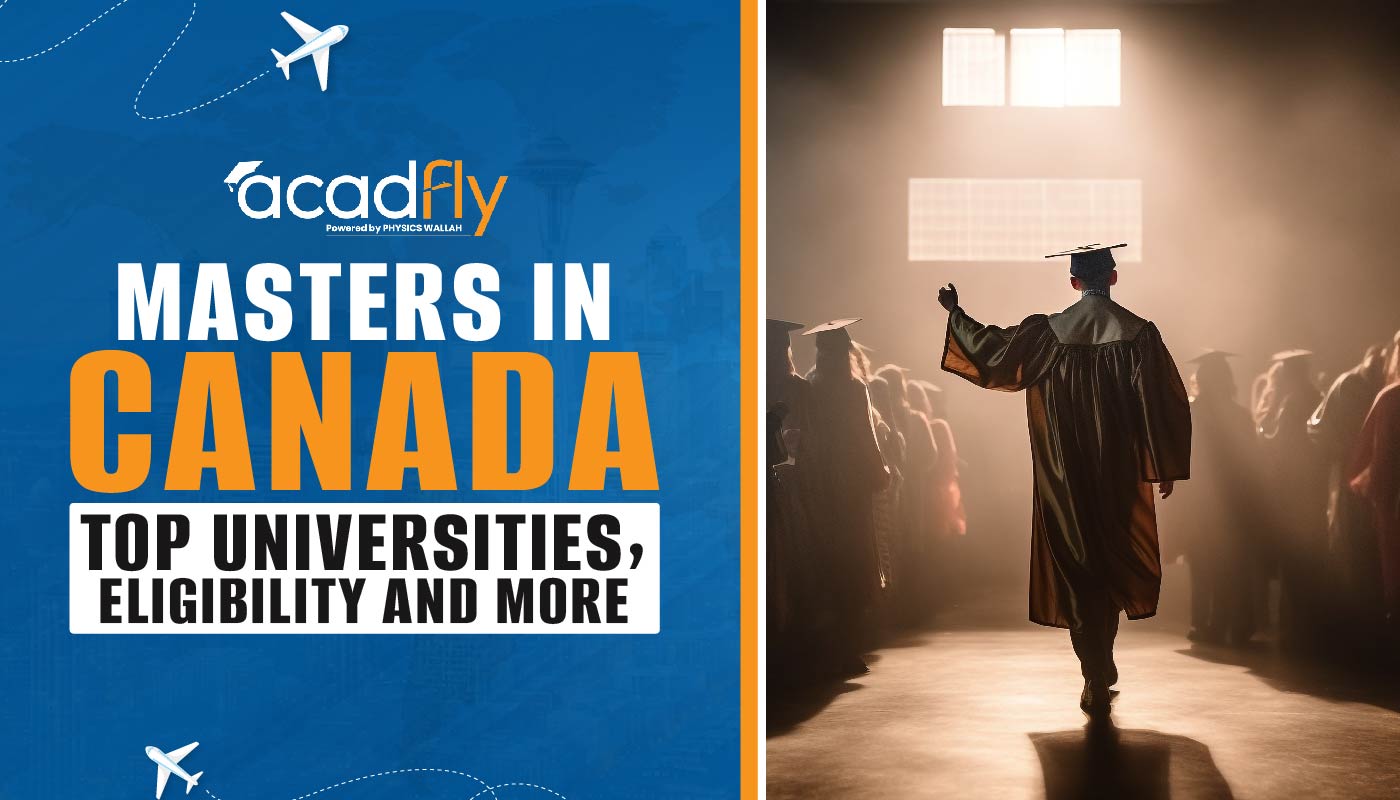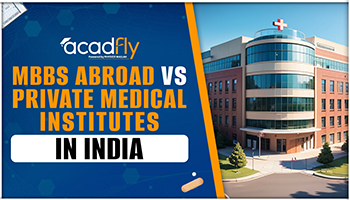
Pursuing an MBBS (Bachelor of Medicine, Bachelor of Surgery) degree abroad has become a popular choice for Indian students in recent years. With the limited number of seats and intense competition in Indian medical colleges, many aspiring doctors are now looking to foreign universities for quality education and global exposure. However, before embarking on this journey, it is crucial to thoroughly understand the eligibility criteria for Indian students to study MBBS abroad. This article provides an in-depth guide to the various aspects of MBBS eligibility criteria, including necessary qualifications, entrance exams, language proficiency, financial requirements, and more. We will also explore key considerations that can impact your decision to study abroad and how to navigate the application process effectively.
Understanding the MBBS Eligibility Criteria for Indian Student
When Indian students consider pursuing an MBBS degree abroad, it is crucial to understand the eligibility criteria to ensure a smooth application process. Studying MBBS Abroad Eligibility involves meeting various academic, age, language, and financial requirements, which may differ depending on the destination country and university.
Indian students must typically have completed their high school education with a focus on science subjects such as Physics, Chemistry, and Biology, and they must also qualify for the NEET exam. Additionally, proficiency in English or the local language, financial stability, and meeting health and visa requirements are essential to successfully apply for an MBBS program abroad. Understanding these criteria can help Indian students better prepare for their journey toward an international medical education.
MBBS Abroad Qualification Requirements for Indian Students
Studying MBBS abroad offers a unique opportunity for students to receive a quality medical education in various international settings. However, each country and university has specific qualification requirements that students must meet. Here’s a detailed overview of the typical qualification requirements for Indian students looking to study MBBS abroad:
1. Educational Qualifications: A Strong Foundation in Science
One of the most critical aspects of eligibility for MBBS abroad is having a robust academic background, particularly in the sciences. Indian students must typically meet the following educational qualifications:
-
Completion of 10+2 Education
Students are required to have completed their higher secondary education (10+2) from a recognized board in India. The subjects studied during this period must include Physics, Chemistry, and Biology (PCB). Some universities may also mandate English as a compulsory subject. The choice of subjects ensures that students have the foundational knowledge necessary for medical studies. -
Minimum Percentage Requirement
The minimum percentage required in the 10+2 examination can vary depending on the country and the university. Generally, an aggregate score of 50% to 60% in PCB subjects is the basic requirement. However, prestigious universities or those in countries with a high standard of medical education may demand a higher percentage, sometimes up to 75% or more. - Importance of a Solid Academic Record
A strong academic record is not only essential for meeting eligibility criteria but also for enhancing the chances of securing admission to top medical schools. Students with higher percentages and excellent performance in science subjects are more likely to be considered by leading institutions.
2. Entrance Exams: Clearing NEET and Other Tests
Entrance exams play a pivotal role in determining eligibility for MBBS programs abroad. The National Eligibility cum Entrance Test (NEET) is a mandatory exam for Indian students aspiring to pursue MBBS outside India. NEET serves as a qualifying examination, and its score is required by the Medical Council of India (MCI) for issuing the eligibility certificate necessary to study MBBS abroad.
-
NEET Exam
The NEET exam is a crucial step in the admission process. Indian students must achieve the required minimum percentile in NEET to be eligible to apply for MBBS programs abroad. The NEET score is a reflection of a student's understanding of the core subjects—Physics, Chemistry, and Biology—and is used by foreign universities to assess academic readiness. -
Country-Specific Entrance Exams
Apart from NEET, some countries may require students to clear additional entrance exams. For example, medical schools in the United States often require the Medical College Admission Test (MCAT), a standardized exam that evaluates problem-solving, critical thinking, and knowledge of natural, behavioral, and social science concepts. Similarly, the UK may require students to take the BioMedical Admissions Test (BMAT) or the UK Clinical Aptitude Test (UKCAT), depending on the university. -
The Role of Entrance Exams in Admission
Entrance exams are not just a formality; they are a measure of a student's preparedness for the demanding medical curriculum. A high score in NEET or other entrance exams can significantly enhance a student's chances of getting admitted to a reputable medical school abroad.
3. Language Proficiency: Mastering the Language of Instruction
Since the medium of instruction in most foreign medical universities is English, Indian students must demonstrate their proficiency in the language. Language proficiency is typically assessed through standardized tests, which are crucial for ensuring that students can effectively communicate and comprehend the course material.
-
IELTS (International English Language Testing System)
The IELTS exam is one of the most commonly accepted tests for English language proficiency. Many universities require a minimum band score, usually ranging between 6.0 and 7.0. The IELTS test evaluates four key areas: listening, reading, writing, and speaking, ensuring that students have a well-rounded grasp of the language. -
TOEFL (Test of English as a Foreign Language)
Another widely accepted English proficiency test is TOEFL. The minimum required score varies depending on the university but generally ranges from 80 to 100 on the internet-based test (iBT). TOEFL assesses a student's ability to use and understand English at the university level. -
Country-Specific Language Requirements
In some non-English speaking countries, students may be required to learn the local language or take courses in the native language to interact with patients during clinical training. For example, students studying in Germany may need to learn German to communicate effectively during their medical internships.
4. Admission Criteria for MBBS Programs: Navigating the Application Process
The admission process for MBBS programs abroad can be complex and requires careful planning. Understanding the specific requirements of each university and country is essential to ensure a smooth application process.
-
Application Form and Documentation: The first step in the admission process is filling out the application form provided by the university or through centralized application systems like UCAS in the UK. Students must submit a range of documents, including academic transcripts, NEET scorecards, language proficiency test scores, a valid passport, and a well-crafted statement of purpose (SOP) that highlights their motivation and suitability for the MBBS program.
-
Personal Interview: Some universities may conduct personal interviews to assess the student's motivation, communication skills, and understanding of the medical profession. The interview is an opportunity for students to showcase their passion for medicine and their commitment to pursuing a career in healthcare.
-
Letter of Recommendation (LOR): Universities may require letters of recommendation from teachers or professionals who can vouch for the student's academic abilities and character. LORs provide insight into the student's work ethic, attitude, and potential for success in the medical field.
-
Application Deadlines: It is crucial to keep track of application deadlines, which can vary depending on the university and country. Missing a deadline can result in losing the opportunity to study at your preferred institution.
5. Financial Considerations: Meeting the Financial Requirements
Studying MBBS abroad is a significant financial investment, and students must demonstrate their ability to cover tuition fees, living expenses, and other related costs. Understanding the financial requirements is essential to avoid any disruptions in your education.
-
Proof of Funds: Most universities require students to provide proof of sufficient funds to cover their education and living expenses for the duration of the course. This may include bank statements, scholarship letters, or financial guarantees from sponsors. The amount required varies depending on the country and the university.
-
Scholarships and Financial Aid: Indian students should explore scholarship opportunities offered by universities, governments, and international organizations. Scholarships can significantly reduce the financial burden and make studying abroad more accessible. Some scholarships are merit-based, while others may be awarded based on financial need, leadership qualities, or specific criteria set by the scholarship provider.
-
Cost of Living: In addition to tuition fees, students must consider the cost of living, which includes accommodation, food, transportation, health insurance, and personal expenses. Countries like Russia, Ukraine, and China are known for their affordable living costs, making them attractive options for Indian students. On the other hand, living in countries like the USA, UK, or Australia can be more expensive, but they offer a higher standard of living and broader career opportunities post-graduation.
-
Financial Planning: Effective financial planning is essential for managing the costs associated with studying MBBS abroad. Students should create a detailed budget, explore part-time job opportunities (where allowed), and consider options for student loans if necessary.
6. Medical Fitness: Ensuring Good Health
Medical fitness is an important eligibility criterion for MBBS programs abroad. Students may be required to undergo a medical examination to ensure they are in good health and free from any contagious diseases. This requirement is particularly important for countries with strict health regulations for international students.
-
Health Clearance: Some countries require students to obtain a health clearance certificate before issuing a student visa. The certificate typically confirms that the student does not have any serious health conditions that could hinder their studies or pose a risk to others.
-
Vaccination Requirements: Depending on the country, students may need to show proof of vaccination against certain diseases, such as tuberculosis, hepatitis, and measles. It's essential to check the specific health requirements of the country where you plan to study.
7. Visa Requirements: Obtaining the Necessary Visa
Securing a student visa is a crucial step in the process of studying MBBS abroad. Each country has its visa requirements, and students must ensure they meet all the criteria to obtain a visa. Common requirements include:
-
Acceptance Letter: Students must have an official acceptance letter from a recognized medical university.
-
Financial Documents: Proof of sufficient funds to cover tuition fees and living expenses is mandatory for most visa applications.
-
Medical Insurance: Some countries require students to have valid medical insurance before applying for a visa. The insurance should cover the entire duration of the study period.
-
Visa Interview: Depending on the country, students may need to attend a visa interview at the consulate or embassy. The interview is an opportunity for the visa officer to assess the student's intentions and ability to succeed in their studies.
Key Considerations for Choosing the Right Country and University
Selecting the right country and university is a crucial decision that can significantly impact your education and future career. Several factors should be considered when making this decision:
-
Accreditation and Recognition: Ensure that the medical university is recognized by the Medical Council of India (MCI) and the World Health Organization (WHO). Degrees from recognized institutions are essential for practicing medicine in India and other countries.
-
Language of Instruction: Consider whether you are comfortable studying in a foreign language or if the program is offered in English. Language barriers can affect your learning experience and interactions with patients during clinical training.
-
Quality of Education: Research the quality of medical education offered by the university, including the curriculum, faculty, infrastructure, and clinical training opportunities. Universities with modern facilities and experienced faculty members are better equipped to provide a high standard of education.
-
Cost of Education: Evaluate the total cost of education, including tuition fees, living expenses, and other associated costs. Compare the costs with the quality of education offered to determine if it provides good value for money.
-
Post-Graduation Opportunities: Consider the opportunities available for further studies or employment after completing your MBBS degree. Some countries offer attractive post-graduation pathways, including residency programs, internships, and work visas.
-
Cultural and Social Environment: Think about the cultural and social environment of the country where you plan to study. Adapting to a new culture can be challenging, and it's important to choose a country where you feel comfortable and supported.
Final Thoughts
Studying MBBS abroad is a significant decision that requires careful consideration of various eligibility criteria and factors that can impact your educational journey. By understanding the requirements and making informed choices, Indian students can take advantage of the opportunities available in foreign medical universities. This comprehensive guide provides the necessary information to help you navigate the complex process of studying MBBS abroad and achieve your dream of becoming a medical professional.
Frequently Asked Questions
1. Are there any age restrictions for Indian students applying for MBBS abroad?
2. Can Indian students work part-time while studying MBBS abroad?
3. What is the MCI Screening Test, and is it mandatory for all Indian students who study MBBS abroad?
4. Is it necessary to learn the local language of the country where I am studying MBBS?
5. How can I verify the recognition and accreditation of a foreign medical university?









